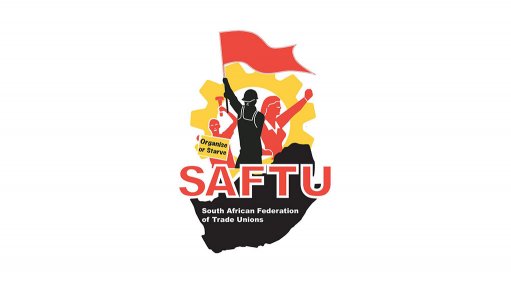
The South African Federation of Trade Unions (Saftu) and #OutsourcingMustFall will be marching to the Gauteng Premier's office on Thursday to demand an immediate end to the outsourcing of work, retrenchments and the use of casual workers and labour brokers.
In the recent past, #OutsourcingMustFall-led strikes secured wage rises of up to 300 percent at institutions of higher learning such as the University of Pretoria and the University of South Africa, and other government institutions like Passenger Rail Agency of SA (Prasa).
In February 2016, Tshwane University of Technology (TUT) management signed an agreement with #OutsourcingMustFall bringing an end to the workers' month-long strike and agreed to phase out outsourcing over the next two years, increasing the minimum wage for newly insourced workers by 100 percent to R5 000.
In a statement, Saftu called for solidarity action by all workers to ensure that labour broking will finally be outlawed and stopped completely.
"The most serious scourge in both sectors is the continued use of labour brokers, despite an amendment to the labour laws which is supposed to have restricted their use to only three months, after which workers must be deemed to be permanent employees," Saftu acting spokesperson Patrick Craven said.
"All employers in the public service must employ all staff directly, with medical aids and provident funds and pay a living wage. The average worker in South Africa supports over five dependent people on a salary. Sixty percent of workers in this country earn less than R5 000 a month."
Craven said that the federation was calling for government to scrap all temporary work opportunities such as the Expanded Public Works Programme (EPWP), Jozi@work, community work programmes and employ the participants on a full-time basis with all benefits.
"The Gauteng Premier must honour a commitment that he made in public that all outsourced staff and labour broking would be ended by December, which has not yet happened," Craven said.